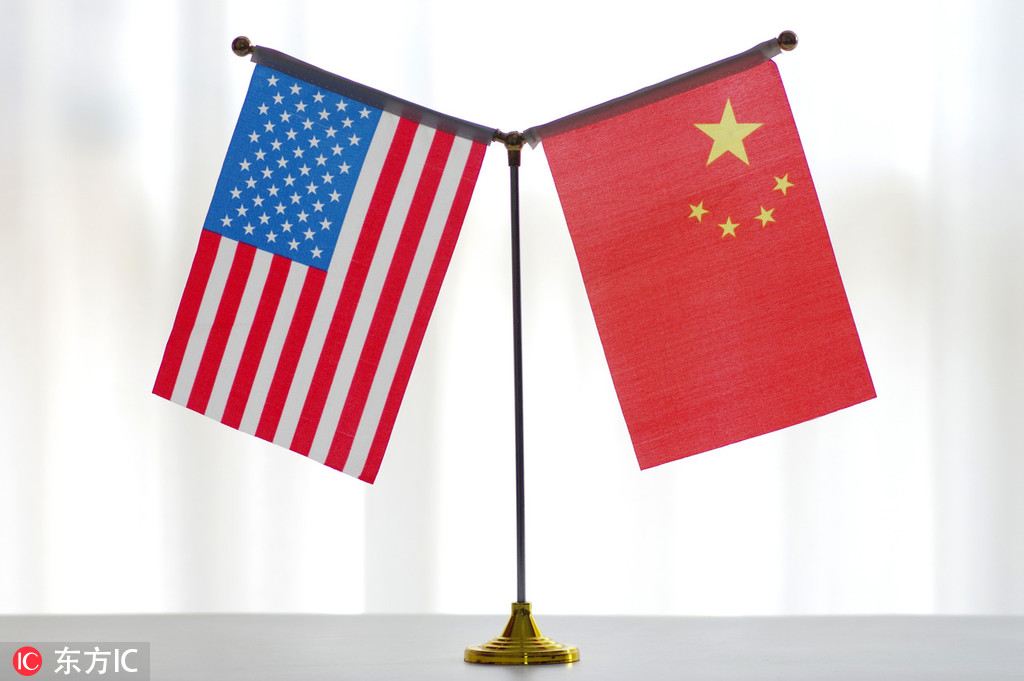
Beijing urges Washington to practice sincerity in order to further negotiations
The United States needs to practice sincerity and "correct its wrong moves" if it wants to continue trade talks with China, the Ministry of Commerce said on Thursday.
The US administration decided on May 10 to further raise tariffs on Chinese imports, and it then placed restrictions on Huawei's business operations, which has harmed the interests of companies and financial markets in both countries.
Gao Feng, ministry spokesman, said the US government's recent moves have unilaterally escalated trade friction, resulting in serious difficulties for economic and trade negotiations.
China's position has always been clear: The US needs to be more sincere and correct its wrong practices if it wants to continue talks, which need to be based on mutual respect with both sides treating each other equally, he said.
China and the US have been embroiled in tit-for-tat trade tensions over the past few months. There's rising concern that the trade dispute between the world's two largest economies will threaten global growth prospects.
Gao said that China will further open and reform its markets, as well as provide companies with a convenient and predictable environment to help them improve their ability to respond to potential risks.
The misuse of state power by the US to suppress Chinese companies not only seriously undermines the commercial cooperation between companies in both sides, but poses a serious threat to the stability of the global industrial chain, said Gao.
"China firmly opposes (the misuse) and hopes that the US will remain rational. In the meantime, we will follow the situation closely and will be prepared for future change," he said.
Also on Thursday, Foreign Ministry spokesman Lu Kang said China hopes the US will take a serious attitude about returning to the negotiating table and ensure that negotiations are meaningful.
Lu's comment followed US Treasury Secretary Steven Mnuchin's remark on Wednesday that he is hopeful that both countries will "go back to the table".
China has reiterated that its door is always open, but negotiations must be meaningful and conducted with sincerity, Lu said at a news briefing.
"A mutually beneficial deal must be based on mutual respect, equality and win-win outcomes," the spokesman said.
In a response to recent US actions, Gao, the Ministry of Commerce spokesman, said China urges the US to end "long-arm jurisdiction", correct its erroneous practices and create conditions for companies from the two countries to carry out trade cooperation and avoid further confrontation.
"Necessary measures will be taken to resolutely safeguard legitimate rights and interests," he added.
The ministry stressed that all foreign companies in China, including US enterprises, will be protected by the Chinese government amid the escalating trade friction, and the ministry is currently looking into efficient ways to further optimize the business environment.
Yu Miaojie, deputy dean of the National School of Development at Peking University, said China has sufficient tools to address the impact from trade disputes with the US.
In the long-term perspective, the country needs to open its market wider to the world, Yu said.
"Don't overemphasize the markets in the US and European Union. China needs to place more emphasis on other markets. For example, China's exports to India, Russia and Brazil account for about 7 to 8 percent of the country's total," Yu said.
He said China also needs to advance the Regional Comprehensive Economic Partnership, a proposed free trade agreement between member states of the Association of Southeast Asian Nations.





